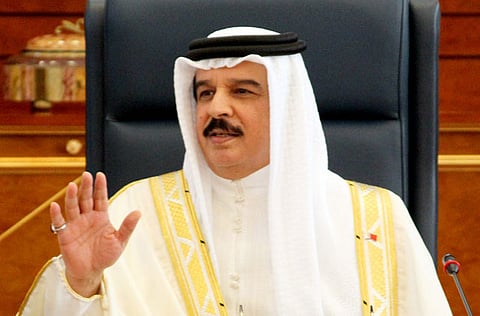Bahrain can create a brighter future
Reforms giving marginalised citizens legal recourse to pursue their rights will also build up resistance to Iran's interference in internal matters

Bahrain is my country, and the tragic confrontation between demonstrators and government forces here earlier this year have filled me and my fellow citizens with sorrow. The report of the Bahrain Independent Commission for Inquiry (BICI) demonstrates in exhaustive detail that excessive practices were used to quell protests, with instances of human rights abuse.
No government should perpetrate such acts against its citizens. Bahrain's King Hamad Bin Eisa Al Khalifa has acknowledged the tragedy, begun the process of identifying and prosecuting its perpetrators, and called for reform. It is right that he has done so.
But it is also right to view the violent confrontations and their aftermath in a broader perspective — and to formulate a new strategy that would enable the population and the government to work together to achieve reforms. Doing so means acknowledging the context of the recent tragedy, which one doesn't find in the BICI report:
The kingdom of Bahrain endures under the shadow of Iran, a brutal dictatorship with an expansionist regional agenda. Iran has cynically manipulated the domestic politics of my country for more than 30 years. As in Lebanon and Iraq, where Iran backs unscrupulous politicians to terrorise and dominate the population, the Iranian regime continuously employs such tactics in Bahrain in order to bring down the government. Its first victims in my country are the Shiite population, whose grievances are exploited by clerics to exacerbate and at times foment civil strife — a ploy which in turn makes the redress of legitimate grievances more difficult.
Despite this constant pressure, Bahrain is the only Arab government to have appointed and enabled an independent commission to study its internal workings and pronounce its findings to the public. The conclusions are difficult to swallow, and the kingdom's openness to them is indicative of its introspection and commitment to change — a most encouraging sign amid hopes for a brighter future in Bahrain.
The BICI report, which focused on the confrontation between demonstrators and security forces over several weeks of upheaval, was, however, not a study of daily life in Bahrain.
A more expansive study along those lines, if it were to be conducted, would attest to larger realities which I know well as a lifelong resident of the country. Sectarianism alone does not explain the disaffection; there are wealthy and powerful Shiites as well as poor and dispossessed Sunnis.
Nor have those with grievances, in my experience, pressed often enough for redress within the framework of the legal system. Too often, and partly as a result of foreign manipulation, Bahrainis have used illegal, extra-systemic means to apply pressure against the authorities. I do not mean to argue that Bahrain's legal system is flawless; far from it. But the credibility of the legal system has not been sufficiently tested by the public, and their disinterest in doing so makes it less likely that the system will work.
Reform, in light of these considerations, should entail a new partnership between the monarchy and the population in pursuit of common, egalitarian goals. Rather than seek to bring down the government, disaffected elements within the population should press for greater inclusiveness within it. And given a new environment in which marginalised Bahrainis pursue their rights within a systemic framework, it behooves the elite to enhance the system's credibility through measures of their own.
Bahraini society should come together in rejecting Iranian interference in the country's internal affairs. Those who seek greater rights and opportunities should condemn Iran's attempts to bring down the government as surely as they press their just demands vis-a-vis the privileged class.
A new public discussion should begin on how to eschew sectarian activism in favour of egalitarianism. This means fostering Sunni-Shiite rapprochement in religious terms, but it also means framing political debates in socio-economic terms.
State and society alike should join hands in a renewed commitment to the rule of law. This means an end to the sort of extra-judicial arrests and violence that occurred during the weeks of confrontation. At the same time, such a commitment also entails an end to the sort of politically motivated mass pardons that followed the confrontation. The legal system is compromised when criminals escape judicial proceedings, as surely as it is compromised when innocents are denied a fair trial.
Meanwhile, for the disaffected among the population, a new commitment to the rule of law means abandoning extra-systemic activism. And for the elite, it means accepting the supremacy of the law and the principle of equal accountability — a full-court press in the struggle against corruption and nepotism based on a vigilant, independent judiciary.
Such notions of reform may only be the beginning of a long and involved process which will not happen overnight. But let the discussion begin.
Dr Abdullah Al Madani is associate professor of International Relations and Asian Studies.
Sign up for the Daily Briefing
Get the latest news and updates straight to your inbox


